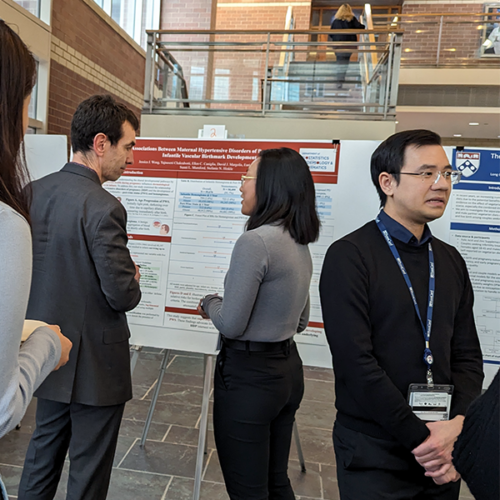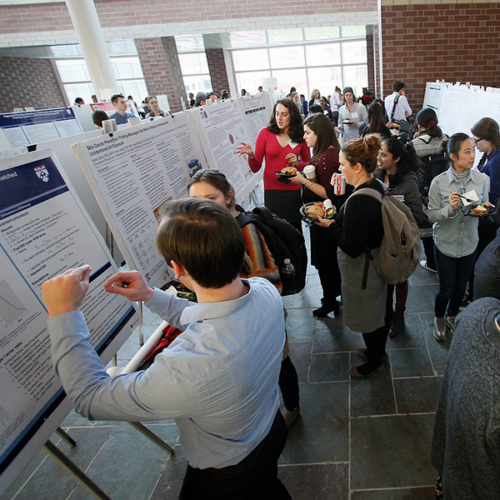Center for Real-World Effectiveness and Safety of Therapeutics (CREST)
Providing actionable real-world evidence to support patients, clinicians, and policymakers in decision making.
Providing actionable real-world evidence to support patients, clinicians, and policymakers in decision making.
The Master of Science in Clinical Epidemiology (MSCE) degree program is an intensive degree program for accomplished medical professionals who seek to further their skills as academic investigators. Applicants who possess an advanced degree in medicine, nursing, or another health field learn to design controlled epidemiological studies and acquire biostatistical skills relating to their research interests. The program, which is administered by the Center for Clinical Epidemiology and Biostatistics (CCEB), is designed to be completed in two to three years of full-time study.
Learn More on the CCEB Website
The Epidemiology Track of the Master of Public Health (MPH) degree program offers a highly focused curriculum for MPH applicants with career goals as a research epidemiologist, data analyst, or epidemiologic practitioner. This is a small and highly competitive track that is limited to full-time students. The track was created in partnership between the MPH program, Graduate Group of Epidemiology and Biostatistics (GGEB), and the Department of Biostatistics, Epidemiology and Informatics.
Learn More on the MPH Website
The Doctor of Philosophy (PhD) in Epidemiology degree program educates and trains individuals for successful careers as independent investigators in epidemiologic research. The program is administered by the Graduate Group in Epidemiology and Biostatistics (GGEB) at the Perelman School of Medicine and many of the program’s core courses are designed and led by DBEI faculty members.
Learn More on GGEB Website
The Clinical Research Certificate program provides non-credit, non-degree training for medical professionals, including clinical and postdoctoral fellows, residents, faculty, and medical students, who are conducting and collaborating on clinical research studies and affiliated with the Perelman School of Medicine. Courses address fundamentals of epidemiology and biostatistics, clinical trial design, database development, practical aspects of study conduct, research ethics, and regulatory compliance. The program, which is administered by the Center for Clinical Epidemiology and Biostatistics (CCEB), is designed to be completed over a single academic year.
Learn More on the CCEB Website
The Center for Clinical Epidemiology and Biostatistics (CCEB) offers six specialized training programs (NIH-funded “T32s”) in various epidemiological areas, designed to help fellows launch their careers as independently funded clinical research scientists and leaders in their fields. Each fellow conducts a rigorously mentored clinical research thesis, which culminates in a publishable result.
Learn More on the CCEB Website
Faculty members associated with the Department of Epidemiology, Biostatistics and Informatics and the Center for Clinical Epidemiology and Biostatistics (CCEB) facilitate Module I and Module II courses and research programs for medical undergraduates. These modules are designed to cultivate participants’ ability to critically appraise and apply information from medical literature.
Learn More on the CCEB Website
The Penn-CREST International Society for Pharmacoepidemiology (ISPE) Student Chapter, founded in 2018, offers students training in pharmacoepidemiology the chance to engage with CREST investigators, ISPE, and peers from other institutions. Members include MS and PhD students in Epidemiology and Biostatistics, as well as early-career professionals and postdoctoral researchers with diverse research interests and backgrounds.
Interested in joining the Penn-CREST ISPE Student Chapter? Contact a member or faculty advisor for more information on how to get involved.
Join us and get involved! Not a member yet? If interested, please contact us at the linked emails below.
Outgoing Chair: Dominique Medaglio, PhD, PharmD
Incoming Chair: Lin-Chieh Meng, MS, BsPharm
Haedi Thelen